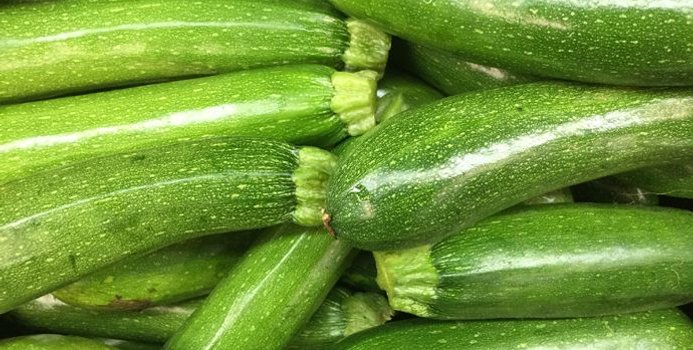In the summer of 2019, we have read many headlines about recalled vegetables because they may have been contaminated with listeria, the most recent of which happened in July, as Growers Express (the manufacturer of brands Green Giant, Trader Joe's and Signature Farms) voluntarily recalled several of their fresh vegetables including zucchini, cauliflower, and butternut squash, because they believed they could contain listeria, CNN reports. But what exactly is Listeria monocytogenes?
The Food and Drug Administration (FDA) has described it as "an organism that can cause serious and sometimes fatal infections in young children, frail or elderly people, and others with weakened immune systems.” It is also dangerous for pregnant women and can result in miscarriage or premature birth. In addition to the more serious health concerns, listeria can also cause short-term symptoms such as severe headaches, stiffness, and nausea—those not at risk may not realize they have the illness and simply feel ill.
According to Live Science, raw vegetables can become contaminated with listeria “either through contact with soil or with animal manure that is used as fertilizer.” Listeria is found naturally in soil and water, and animals can carry the bacteria without any harm coming to them. It can also get into food in a processing factory and is able to live on equipment for years, the publication notes.
Another danger of listeria is that it can survive in cold temperatures. "It's a pathogen that's particularly problematic in food-processing plants because it really likes cold, moist, dark environments," Benjamin Chapman, a food safety expert told Live Science.
There is also no way of seeing it in your food, smelling it, or tasting it, WebMD reports. The publication notes that the foods that are most likely to make you sick are raw vegetables (which have been contaminated by the soil or manure fertilizer), animal meat (contaminated with it), unpasteurized milk and other dairy products, and processed meats (contaminated after they are produced).
Practicing good hygiene, for example, washing your hands when cooking, cleaning all kitchen surfaces, scrubbing vegetables, cooking meat at high temperatures, and not leaving processed foods open and uneaten for days, could help reduce the risks of listeria.
[Image via Shutterstock]



